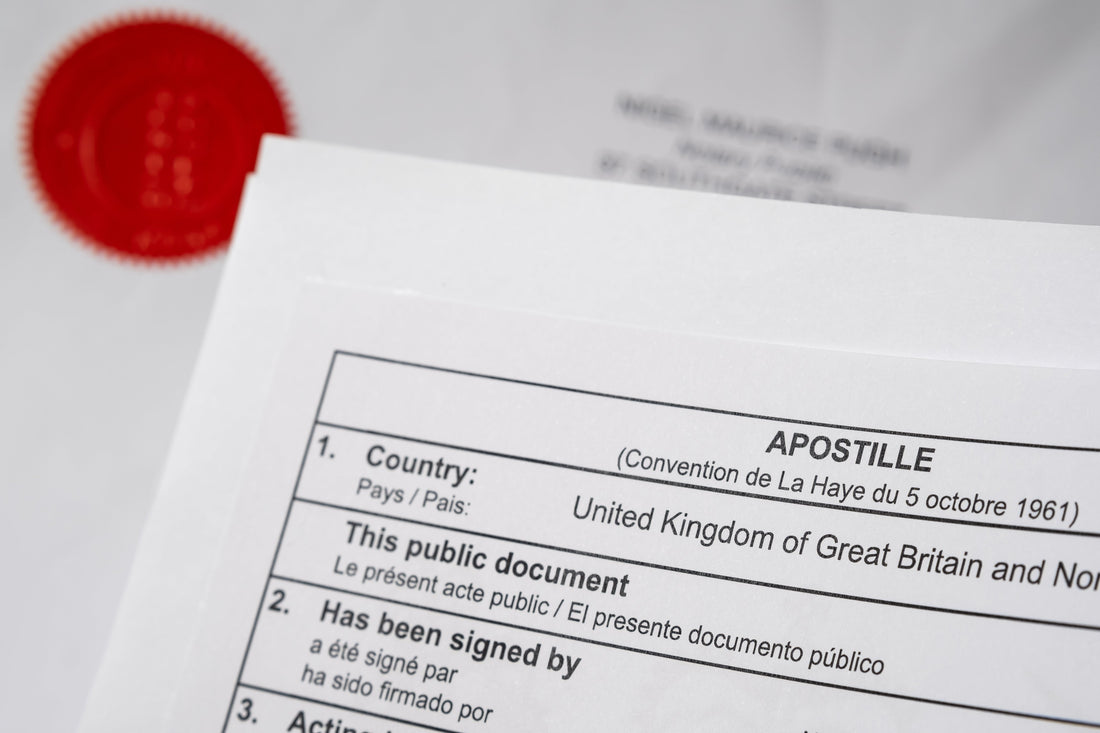
Apostille vs Consular Legalisation: A Guide for UK Businesses and Partners
For businesses, law firms, and partners managing international paperwork, understanding the difference between apostille legalisation and consular legalisation is crucial. Choosing the wrong process can lead to delays, rejections, and unnecessary costs for your clients.
This guide breaks down both methods, explaining when to use each one — and how to streamline the process for your organisation.
What Is Apostille Legalisation?
An apostille is a certificate issued by the UK Foreign, Commonwealth & Development Office (FCDO). It confirms the authenticity of:
-
Signatures
-
Stamps
-
Seals on official UK documents
Countries that are part of the Hague Apostille Convention accept documents with an apostille without any further authentication.
Examples: France, Spain, Italy, Germany, the USA, Australia, and over 120 other countries.
For these jurisdictions, an apostille alone is sufficient for legal recognition.
What Is Consular Legalisation?
Some countries are not signatories to the Hague Convention. In these cases, documents must go through consular legalisation after the apostille stage.
The process usually involves:
-
Notarisation (if required)
-
FCDO Apostille
-
Certification by the relevant embassy or consulate of the destination country
Examples: the UAE, Qatar, Saudi Arabia, and many African countries.
Here, the embassy or consulate must verify the apostille before the document becomes valid for use.
Apostille vs Consular Legalisation: Key Differences
| Feature | Apostille Legalisation | Consular Legalisation |
|---|---|---|
| Recognition | Hague Convention countries only | Non-Hague countries |
| Process | FCDO Apostille only | FCDO Apostille + Embassy/Consulate verification |
| Speed | Faster (often next-day) | Longer (extra embassy steps) |
| Cost | Lower | Higher (embassy fees apply) |
| Complexity | Simple, one authority | Multi-step, embassy involvement required |
Common Mistakes Partners Should Avoid
-
❌ Assuming all countries accept apostilles — always confirm if the destination country is a Hague Convention member.
-
❌ Incorrect document preparation — some documents require notarisation before the apostille.
-
❌ Ignoring embassy holidays — closures can cause unexpected delays in consular legalisation.
-
❌ Overlooking translation requirements — some countries require certified or sworn translations alongside legalised documents.
Best Practices for Partners
-
✅ Verify the destination country’s requirements before starting the process.
-
✅ Work with FCDO-registered providers to ensure speed, accuracy, and compliance.
-
✅ Bundle services — handle notarisation, apostille, translation, and consular legalisation under one roof to save time.
-
✅ Plan ahead for embassy timelines, especially for urgent client cases.
How Our Partnership Programme Helps
With the Fast Track London Partnership Programme, partners benefit from:
-
Next-day apostille services for Hague Convention countries
-
Full consular legalisation for non-Hague destinations
-
Bulk processing options for corporate and legal partners
-
Transparent tracking of every stage in the process
This ensures your clients receive fully compliant documents with minimal delays and maximum confidence.
Final Thoughts
Understanding when to use apostille legalisation versus consular legalisation is essential for partners handling international documentation. By working with experienced, FCDO-registered providers, you can:
-
Avoid delays
-
Reduce costs
-
Deliver a reliable, professional service to your clients
Contact us today to learn how our partnership programme can support your business with both apostille and consular legalisation services.
